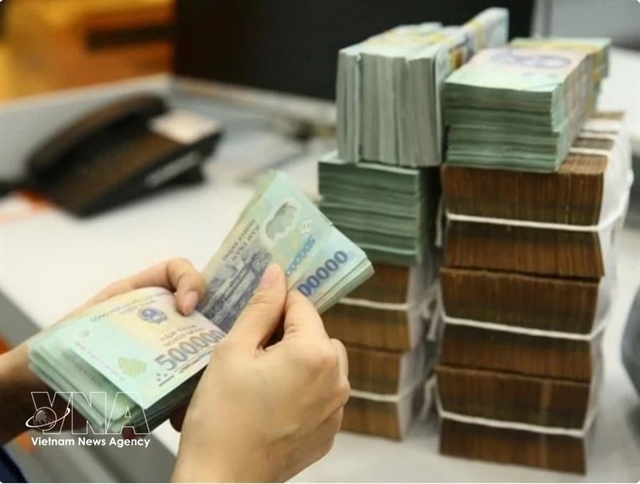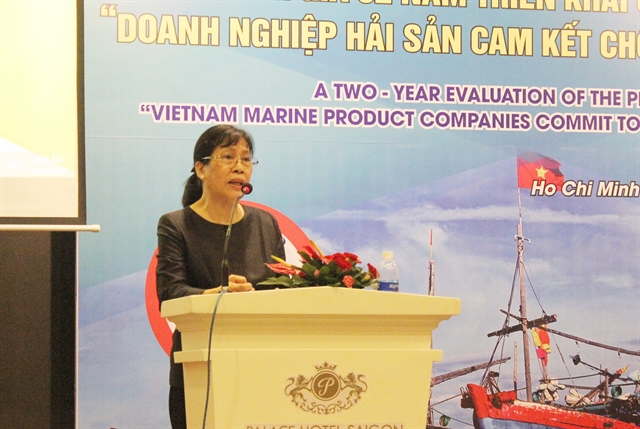 Economy
Economy

The Việt Nam Association of Seafood Exporters and Producers and fisheries companies have pledged to with authorities and fishermen to meet EU demands on fighting IUU (illegal, unreported and unregulated) fishing.

|
HCM CITY — The Việt Nam Association of Seafood Exporters and Producers and fisheries companies have pledged to with authorities and fishermen to meet EU demands on fighting IUU (illegal, unreported and unregulated) fishing.
Nguyễn Thị Thu Sắc, VASEP’s deputy chairwoman and chairwoman of the VASEP Marine Product Committee, said, enterprises are determined to develop the fisheries sector in a sustainable manner and retain import markets.
Speaking at a conference held to evaluate two years of implementation of a programme to combat IUU Fishing in HCM City yesterday, she said, “After two years of the EU yellow card for Việt Nam's seafood products, Việt Nam's exports to the EU have been badly hit, falling by 6.5 per cent to US$390 million in 2018 and continuing to taper off in the first eight months of 2019 to $251 million.
“From being the second largest import market for Việt Nam's seafood, after the yellow card the EU has dropped to fifth, and [its imports] have decreased from 18 per cent to 13 per cent [of Việt Nam’s exports].”
Cao Thị Kim Lan, director of Bình Định Fishery JSC, said her company’s exports have been badly hit due to the EU’s yellow card.
Some 70-80 per cent of her consignments to the EU was inspected, and it takes 10-20 days to complete customs clearance, pushing up costs and reducing the competitiveness of Vietnamese marine exports to the market, she lamented.
The EU market used to account for 60-70 per cent of her company’s total export, but now it was just at about 40 per cent, she said.
Nguyễn Hoài Nam, VASEP’s deputy general secretary, said realising the negative impact of the yellow card on Việt Nam's seafood exports to the EU and the prestige of Vietnamese seafood products in the global market, two years ago the IUU executive board was launched.
It promised to be committed to combating IUU fishing with the participation of 62 marine product enterprises and approving an action plan for the Programme on Marine Product Enterprises’ Commitment to Combating IUU Fishing.
In the two years since seafood enterprises have been very active in carrying out the programme's activities to get rid of the yellow card.
They have hung boards carrying their commitment to combating IUU fishing (in both English and Vietnamese) at their company entrance, buy raw materials sourced from legal fishing vessels with clear traceability and only import legally caught seafood, comply with the provisions of the US, EU and Việt Nam to combat IUU fishing, and participate in seminars, training, propaganda, and communication on IUU fishing.
Sắc said the Government and seafood enterprises have tried their best to combat IUU fishing.
But the most important factor is fishermen’s awareness and how they comply with the provisions against illegal fishing, she said.
To get rid of the yellow card, localities and relevant agencies need to work to improve fishermen's awareness of sustainable exploitation and equip their fishing vessels with journey supervision equipment connecting them with a monitoring system, which will operate non-stop after leaving port, she said.
The country needs to develop a transparent information system that connects fishing vessels with ports and enterprises to make it easy to trace the origin of marine products, she said.
”We are fully aware that it is vital for us to say no to IUU fishing. We are striving to get back the green card as soon as possible.” — VNS




